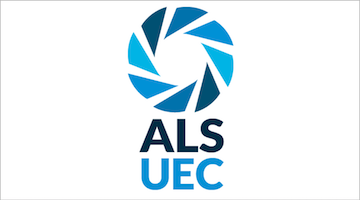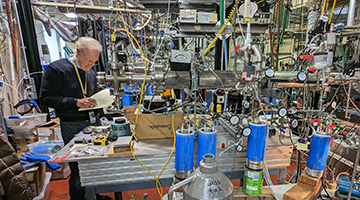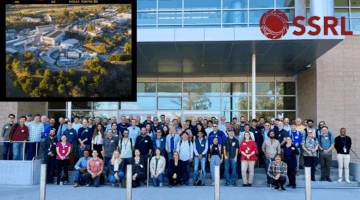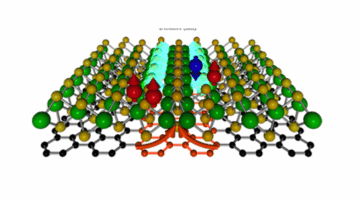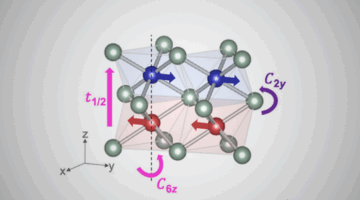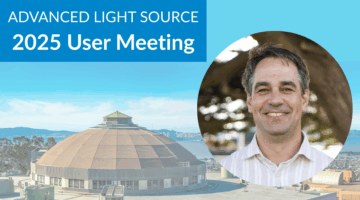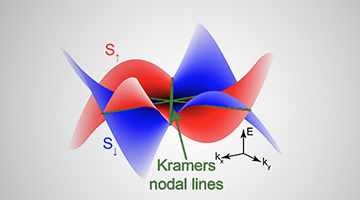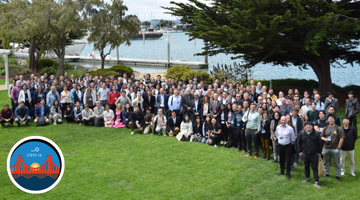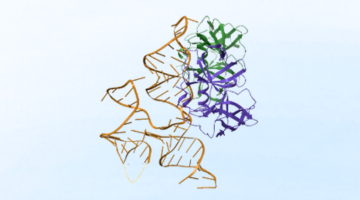The Advanced Light Source Users’ Executive Committee (UEC) invites nominations for its upcoming election for five new UEC members (2026–2028 term). Nominations will be accepted through Friday, October 31, 2025. Take a look at what is involved, and remember that self-nominations are welcome! Read more »
Like the Sun, ALS Fractures Nitrogen Gas to Study Alien Atmospheres
A research team used the ALS to recreate how the Sun breaks apart nitrogen to inform a new model that can be used to understand the fate of a variety of elemental isotopes to explain atmospheric evolution on planets across the solar system. Read more »
Beam Across the Bay: ALS Visits SSRL
It is rare to find synchrotron light sources around the world, much less two within 50 miles of each other. Capitalizing on their proximity, the Stanford Synchrotron Radiation Lightsource hosted the Advanced Light Source for a day of introductions and reconnections, all in the name of science. Read more »
Separating an Electron into Waves of Spin and Charge
Researchers are exploring how a thin film can host a Tomonaga–Luttinger liquid, which separates an electron’s charge and spin. The research findings could contribute to the development of ultra-compact and energy-efficient technologies. Read more »
The Quest for an Altermagnet
Researchers determine the unique electronic structure of altermagnets, which offers numerous benefits in creating energy-efficient devices based on spin-polarized electron currents. Understanding how altermagnetism works could contribute to the development of next-generation memory, logic, or sensing devices that are faster and consume less power. Read more »
Greg Hura, SIBYLS Team Receive Halbach Award
Greg Hura and the Structurally Integrated BiologY for the Life Sciences (SIBYLS) team received the 2025 Klaus Halbach Award for Innovative Instrumentation at the recent 2025 User Meeting “for their pioneering work in developing the time-resolved, high-throughput, small-angle x-ray scattering (SAXS) technique at Beamline 12.3.1.” Read more »
Designing Quantum Materials for Future Electronics
Researchers bring theory into practice and confirm a new material’s characteristics at the ALS. The study opens new opportunities to design a substance that renders extra “handles” on the electron—not just its charge, but its spin and valley—so we can build computers that are faster, cooler, and more energy-efficient compared to traditional electronics. Read more »
Celebrating the Legacy and Future of Electron Spectroscopy: Highlights from ICESS 2025
The 2025 ICESS conference brought together global experts in electron spectroscopy, emphasizing interdisciplinary research, early career engagement, and collaboration. Hosted in Berkeley and led by the ALS, it featured plenary and invited talks, poster sessions, and networking events, highlighting innovations and future directions in the field. Read more »
Guiliang Xu to Receive 2025 Early Career Award
Guiliang Xu is the 2025 winner of the Early Career Award. The Users’ Executive Committee recognizes his work on synchrotron-based characterization of battery materials. Read more »
Researchers Identify Viral Swiss Army Knife, Clarifying How Replication Occurs
Viruses are ingenious, infectious agents, capable of replicating inside the living cells of a host organism. Enterovirus, a common viral pathogen, is responsible for a range of diseases from mild colds to severe conditions, including viral meningitis, myocarditis, and paralysis. A new study sheds light on how enteroviruses use structured RNA elements and multifunctional proteins to coordinate viral replication efficiently using minimal genetic material. Read more »
- 1
- 2
- 3
- …
- 28
- Next Page »
